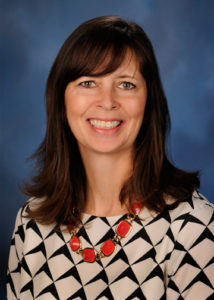SPRINGFIELD, Ill. – At the conclusion of the legislative session in Springfield, state Rep. Kelly Burke, D-Oak Lawn, issued the following statement:
“First and foremost, I want to express my gratitude to the first responders, nurses, doctors and essential workers who put their lives on the line every day to protect our families and serve our community’s needs. As we continue toward an uncertain future, it is critical that we provide them with the resources they need during this unprecedented crisis.
“I supported a balanced budget that reflects our urgent priorities by providing the resources our heroes need while ensuring that we do not spend beyond what we have in revenue. This spending plan provides over $700 million in new funding for public health measures, including COVID-19 testing and services performed by local health providers, and increases funding for Medicaid and home health care services for seniors.
“In addition, this plan also provides full funding for unemployment in the face of an uncertain economy and over $40 million for career and technical education to help those whose careers have been affected by the COVID-19 pandemic. It keeps our promise to fully fund our pension system, and maintains our commitment to education from early childhood to college.
“This week I also backed Senate Bill 471 to make it easier for first responders and workers who contracted COVID-19 on the job to receive workers’ compensation benefits, and supported measures to expand tele-health and mental health care resources that have become increasingly critical. As our families need affordable health care more than ever, this legislation directs the state’s top health and insurance officers to report to the General Assembly on ways we can reduce the high costs of health insurance.
“In order to protect residents as they make their voices heard in November, I also worked to expand vote by mail options and create opportunities for local election officers to help people vote through ‘curbside voting’ options and through special voting hours for seniors and those at higher risk for COVID-19.
